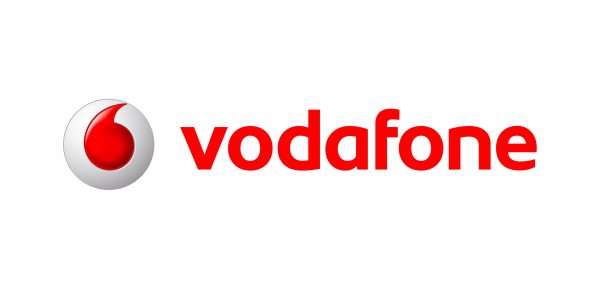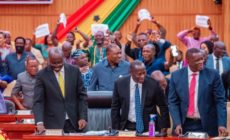The amount, the tax authorities say, is about 30 per cent of the Vodafone Ghana’s turnover, and yet Vodafone claims it has not made any profits since it took over Ghana Telecom in 2009.
This is contained in an affidavit filed by the GRA in response to a motion filed by Vodafone Ghana at the Commercial Division of an Accra High Court against the GRA disputing tax assessments of over GH?160 million (162,468,361.90).
The GRA has asked Vodafone to pay 30 per cent of the stated assessment, which Vodafone disputes as required by section 42 (5) (b) of the Revenue Administration Act 2016 (Act 915) while negotiations continue, but Vodafone has requested a waiver from the Commissioner-General.
The telecoms provider is asking the court to compel the Commissioner-General to determine its request for a waiver of the said payment of the 30 per cent of the amount, which is about GH?49 million.
The writ, filed at the Commercial Division of an Accra High Court, lists Vodafone Ghana as Ghana Telecommunications Co. Ltd, and states that “the lawyers of the Applicant shall move this Honourable Court praying for an order of certiorari, bringing up and quashing the decision of the Respondent demanding payment of 30 per cent of a disputed tax assessment and for an order of mandamus compelling the Respondent to determine the Applicant’s request for a waiver of said payment.”
The GRA, in the affidavit obtained by Adom News, describes Vodafone’s motion as ill-conceived and misplaced because it was filed even before the Commissioner-General could determine the application from Vodafone to him.
Meanwhile, Vodafone officials have denied the claims that the company has been remitting its parent company outside Ghana.
The 29-point affidavit states, among other things, that Vodafone Ghana applied to the GRA under section 42(6) of the Revenue Administration Act 2016, (Act 915) to waive the payment of the 30 per cent, but also states that section 42(7) of the same act sets out the issues to be considered by the GRA in determining an application for a waiver.
The affidavit states further that in light of section 42(7), the GRA wrote to Vodafone that it was yet to consider whether to exercise the power under section 42(6) of Act 915, noting that under section 43(2) of Act 915, the authority has 60 days upon receipt of an objection to a tax decision to make a determination of the objection, but 26 days after filing its objection and 19 days after the request for a waiver of the 30 percent, Vodafone Ghana filed for application to quash a decision that had not been made and to compel the making of a decision for which the statutory period had not expired.
In the affidavit, the GRA describes Vodafone’s application to invoke the supervisory jurisdiction of the court as premature, owing to the fact that it was filed on September 13, 2017 — 26 days from the date of receipt of Vodafone’s objection to the tax assessment raised on it.
The GRA contends further that the transfer pricing audit of Vodafone Ghana is still ongoing, which necessitated the Respondent’s request for information dated on August 21, 2017, adding that “the request for further information with respect to the Transfer Pricing Audit ‘in order to facilitate the audit process’ is different from the Audit and tax assessment of GH¢162, 468, 361.90 under the Technology Transfer Regulations, 1992 (L.I. 1547).”
The GRA argues further that the application to court by Vodafone Ghana is clearly an attempt to avoid satisfying the conditions imposed by law for a determination of its objection against a tax decision, adding “that the demand for the payment of 30 per cent of the assessment is a mere fraction of tax assessed considering the amount of money remitted to Vodafone Ghana’s parent company.”
The GRA tells the court in the affidavit that Vodafone’s current application is not only without any legal and factual basis, but same is completely erroneous, wholly misconceived and thus unmeritorious, and prays that same be dismissed with costs.
– adomonline











 (Selorm) |
(Selorm) |  (Nana Kwesi)
(Nana Kwesi)